search for a Trip
Foping Nature Reserve
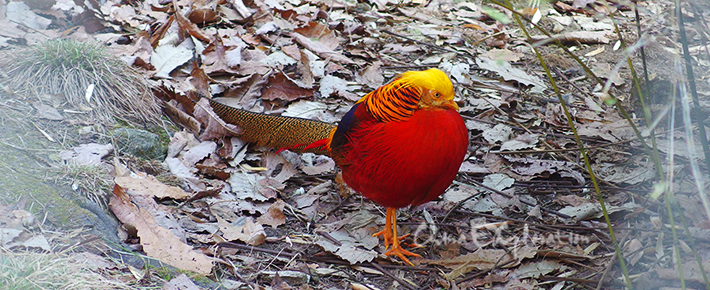
Foping Nature Reserve, about 215 km to Xi'an, known as the "Home of Panda" lies on the middle of Qinling Mountains and contain the highest panda population density in China. You can find the Qinling Mountains in one of the most biologically rich temperate forest in the world and a very important landmark in China. Some of the peaks of Qinling Mountains reach are higher than 3000 meters so they act as a barrier to cold, dry air coming in from the north.
On the broad southern slopes, on the other hand, warm rains encourage luxuriant growth and therefore an amazing variety of plants and animals, which are found only in China and nowhere else in the world.
It is very difficult to see a panda in the wild because they live in thick bamboo in the old-growth forests. But if you go into the forests where pandas live, it is easy to find panda traces like droppings and partly-eaten bamboo.
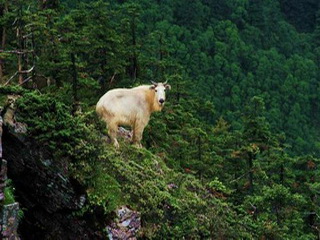
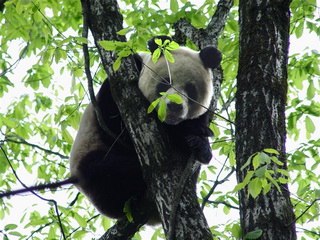
Foping National Nature Reserve offers a vast spectrum of eco-tours for travelers and nature lovers. Bird watching tours, wildlife viewing, mountaineering, hiking, - these are just a few examples of activities. Amongst the luxuriant vegetation of the ancient Ginkgo and Bamboo forests live some of the last Giant Pandas on earth - alongside Red Pandas, golden Takins, fabulously colored pheasants and the very rare Giant Salamander...
The Giant Panda is one of most endangered species in the world. It's important that pandas live in areas with several different species of bamboo which flower at different times, otherwise the pandas would starve, as happened in 1975 when at least 138 pandas died. The last census of Giant Pandas, also known as 'Bamboo Bears', was back in the 1980's and it suggested that there may be no more than 1000 of these creatures left in the wild.
But now, WWF-China is working together with the Government of China on a new survey and later in 2002, we should have a better idea of just how many pandas there are.
Much less well-known but certainly very impressive looking is the Takin which a beautiful golden-haired ox with a big, broad nose. They are very big and strong. And they are very beautiful.
When you see one with the sun shining on its golden hair and it's standing there like a General, you cannot describe how powerful it looks. Takins usually live in groups and feed on the woody plants and bamboos of Qinling's mountain forests. But sadly, a lot of poachers still hunt them for their meat.
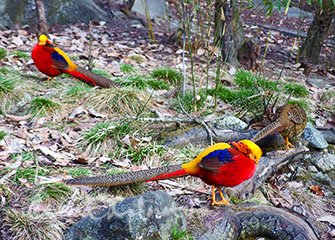
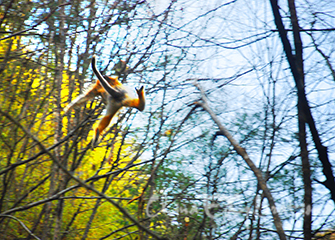
The takins are not the only golden-haired creatures in Foping N.R.. There is a monkey there with a tiny nose and many different names, including two Latin ones! The Chinese Golden Monkey is variously called the Golden Snub-nosed Monkey or Sichuan Snub-nosed Monkey but whatever it's name, these monkeys are famed for their fur and therefore highly prized. They are about 60-70 cm tall. It really hangs over their shoulder so when they jump from tree to tree, it looks like they have wings. Golden Monkeys live in large groups.
Foping Nature Reserve is participating in the World Wide Fund's Panda Program in October, 2000. Foping Nature Reserve has become another highlight attraction and is regarded as new national treasure of Xi`an by 120 wild pandas. To increase wild panda populations and their habits by at least 10%, the Shaanxi Forestry Department and WWF are working together to create new panda reserve and establish ecological corridors to enlarge the protected habitat for the panda population in Xi'an.
Related Tours:
China Attractions Guide
- Anhui Attractions
- Beijing Attractions
- Chongqing Attractions
- Fujian Attractions
- Gansu Attractions
- Guangdong Attractions
- Guangxi Attractions
- Guizhou Attractions
- Hainan Attractions
- Henan Attractions
- Hongkong Attractions
- Hubei Attractions
- Hunan Attractions
- Inner Mongolia Attractions
- Jiangsu Attractions
- Jiangxi Attractions
- Manchuria Attractions
- Ningxia Attractions
- Qinghai Attractions
- Shaanxi Attractions

SEARCH

